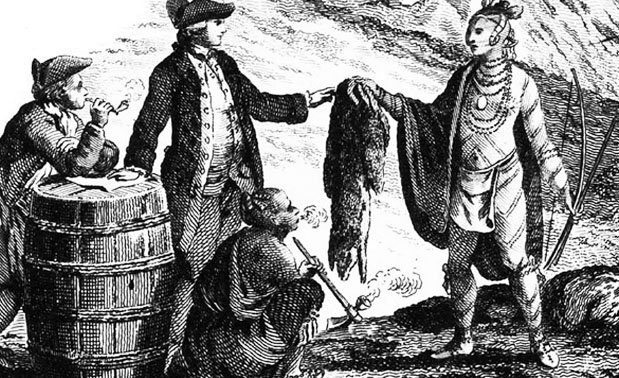Do you know, what is Rum Trade? The manufacture and trade of rum between Caribbean colonies, North America, and Great Britain was a major colonial enterprise. The rum trade was intricately tied to the history of sugar plantations in the Caribbean. The islands of the Caribbean were ideal for growing sugarcane, which resulted in the establishment of hundreds of sugar plantations in the 17th and 18th centuries.
Rum is distilled from molasses, a syrupy byproduct of sugar’s crystallization process. Caribbean rum, with its rich color and an aroma lacking in rums brewed elsewhere, was considered the finest in the world. The British sugar islands in the Caribbean generally fared well during the wars of the 17th and 18th centuries. Protected by the strong British Navy, these colonies were rarely attacked, and insurance rates for shipping goods remained low.
Some of the French and Dutch islands did not fare as well, however. During the French and Indian War (1754–1763), the British seized the French-held island of Guadeloupe, one of the largest molasses producers in the Caribbean, forcing the French to pay dearly for its return in 1763. The intense specialization in sugar and molasses meant that the Caribbean islands were completely dependent on imported goods for their subsistence.
In exchange for sugar, the North American mainland provided Caribbean planters with lumber, grain, meat, cheese, and butter. The sugar and rum trade was built on the backs of slaves, whose survival rates in brutal Caribbean conditions were notoriously low. A combination of tropical diseases, malnutrition, and overwork made the natural increase of the slave population impossible.
In order to feed the sugar islands’ voracious demand for slaves, trade runs to Africa were factored into the colonial economy. This set the stage for the infamous “triangular trade.” Molasses was exported from the sugar islands to the North American mainland, where it was distilled into rum. It was then shipped to Africa, where it was traded for slaves.
The slaves were sold in the Caribbean, where the labor-intensive sugar plantations were always in need of more hands. The British sugar islands had competition from French, Dutch, and Spanish colonies in the Caribbean, which also specialized in sugarcane. British mercantile policies limited the mainland colonies from doing business with non-British sugar colonies, although the lure of cheaper sugar from French colonies was tempting to New England smugglers.
British sugar was roughly 20 percent more expensive than that produced by the French. Planters in the British Caribbean resented competition from the French and agitated for legislation to snuff out competition. The result was the 1733 Molasses Act, which placed prohibitive duties on sugar or molasses from non-British colonies. The act was only a paper victory, however, as it was routinely ignored by customs officials willing to take a bribe and smugglers willing to circumvent the law.
The British attitude toward salutary neglect was changed after the conclusion of the French and Indian War in 1763, which left the English with staggering debts and an urgent need for new revenue. The Sugar Act of 1764 changed the provisions of the old Molasses Act to include several new restrictions. The original duty of sixpence per gallon of molasses was cut in half, but it was strictly enforced and applied to all sugar or molasses regardless of the source.
Taxes on other commodities, such as coffee, cloth, and silk, were also subject to the tax. Ships were required to submit to stringent bonding procedures before loading their cargo. The Royal Navy’s presence in the Caribbean was also expanded and charged with enforcing trade legislation. Smuggling was discouraged by much harsher punishments, including seizure of the ship and cargo.
Merchants who wished to contest charges of evading the tax were forced to use vice-admiralty courts, which deprived them of their right to a jury trial, statements by witnesses, cross-examination, and other rights normally granted under common law. The result of the Sugar Act was a slump in the New England rum trade. That in turn exacerbated tensions between the mainland colonies and England. Beginning in 1764, a group of angry distillers in Boston initiated a boycott of English goods.
The boycotts caused hardship to local merchants, whose imported supplies slowed to a trickle. As a result of the shortage of sugar, distillers turned to more readily available crops to make liquor. The popularity of whiskey, made from corn or rye, was a direct result of the Sugar Act.
Read More – John Winthrop – British and Colonial Military Officer

Originally posted 2022-05-06 10:03:32.